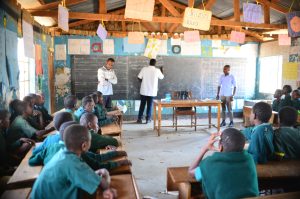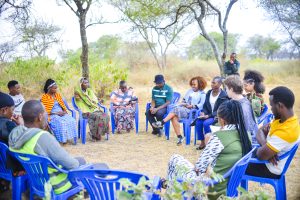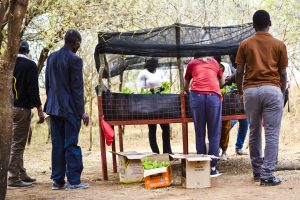Sokoine University of Agriculture (SUA), Michigan State University, and the University of Dar es Salaam have collaborated on an initiative to develop a model of sustainable community development through the Tanzanian Partnership Program (TPP). In the latest 6 week iteration of this program, a team comprising four students and one faculty member from SUA’s College of Veterinary Medicine and Biomedical Sciences worked alongside their counterparts from Michigan State University and the University of Dar es Salaam. Their joint efforts focused on integrated development activities and research in Naitolia village, Monduli District, Arusha Region.
The team undertook three primary tasks aimed at augmenting community awareness and practices related to health, food security, and household income. Fifth-year Bachelor of Veterinary Medicine (BVM) students facilitated a series of focus group discussions and interviews with primary school pupils, teachers, and parents to gauge their understanding of adolescent health. Additionally, they provided sanitary supplies to enhance personal hygiene and overall community health.
To address food security, improve household income, and advance community health; the students conducted workshops and training sessions on enhanced poultry management and agricultural practices. Their contributions also included the construction of poultry houses and participation in activities to improve soil preparation, planting, pest control, harvesting, and processing of agricultural produce.
Some of the lessons acquired during this year’s program were traditional poultry management practices, vegetable farming and how to undertake environmental rehabilitation as means towards sustaining food supply within a community said Emerysiana Kasheshi, one of the student participants from CVMBS.
TPP was initiated in 2008, and is currently working in two pilot villages of Naitolia and Milola. The Project’s main focus is on integrated development activities and research in such sectors as education, water, economic development, agriculture, food security, human and animal health as well as community empowerment.


